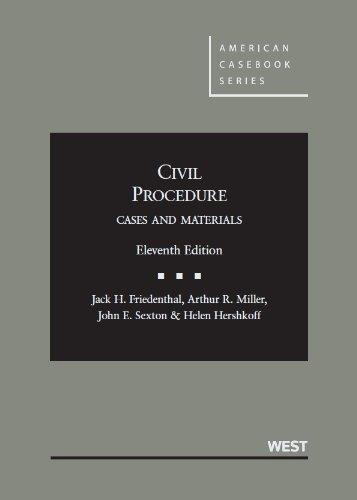12. A dual national is a citizen of the United States as well as a citizen of...
Question:
12. A “dual national” is a citizen of the United States as well as a citizen of a foreign country. In SADAT v. MERTES, 615 F.2d 1176 (7th Cir. 1980), the Court of Appeals considered whether alienage jurisdiction could be invoked by a litigant who was a citizen of Egypt and a naturalized citizen of the United States. Plaintiff was involved in a car accident while living in Pennsylvania. He returned to Egypt and later filed suit against the United States parties involved in the accident. The Court of Appeals held that plaintiff could not invoke diversity jurisdiction because he was domiciled in Egypt and so was not a citizen of any state; moreover, he could not invoke alienage jurisdiction because, although an Egyptian citizen, his United States citizenship was dominant given his voluntary naturalization and intent to return to the United States. Should the result be different if the dual citizen’s dominant nationality is that of a foreign country? The typical view is that only the United States citizenship should be considered. The Seventh Circuit has explained:
[T]he major purpose of alienage jurisdiction is to promote international relations by assuring other countries that litigation involving their nationals will be treated at the national level, and alienage jurisdiction is also intended to allow foreign subjects to avoid real or perceived bias in the state courts a justification that should not be available to the dual citizen who is an American.
Buchel-Ruegsegger v. Buchel, 576 F.3d 451, 454 (7th Cir. 2009) (quotations omitted). Do you agree with the premise that a dual national will not be subject to the same bias as an alien?
Step by Step Answer:

Civil Procedure Cases And Materials
ISBN: 9780314280169
11th Edition
Authors: Jack Friedenthal, Arthur Miller, John Sexton, Helen Hershkoff






